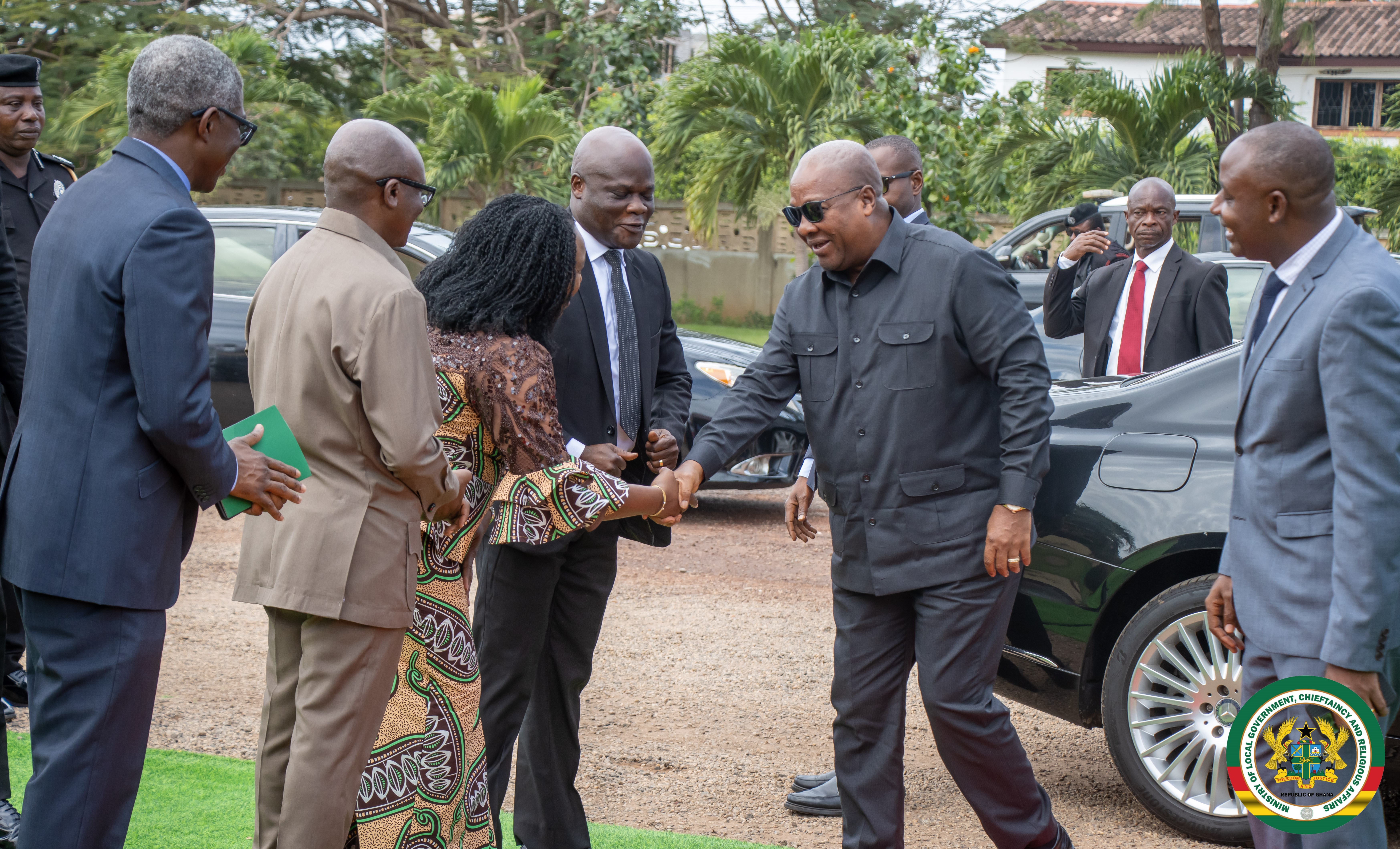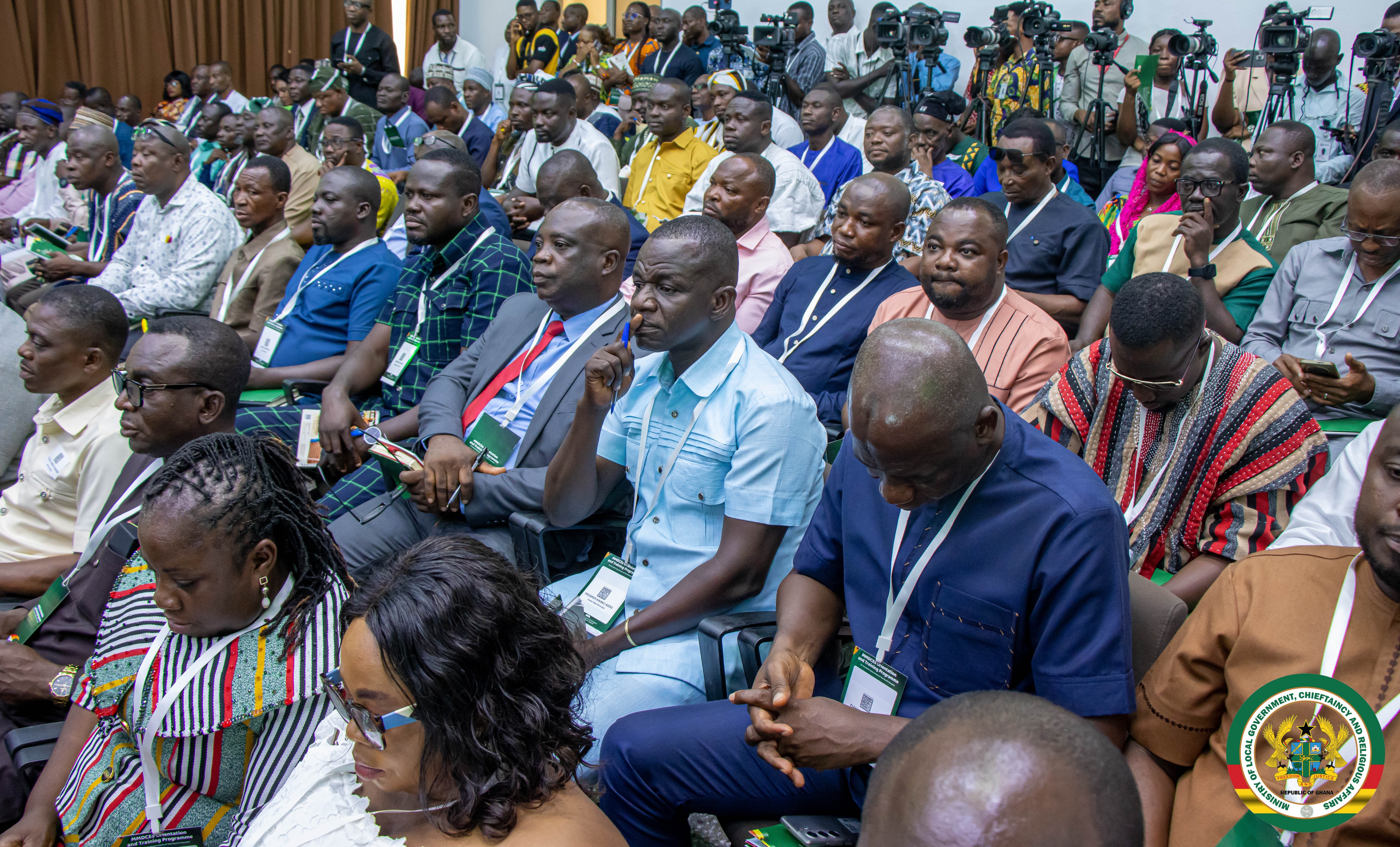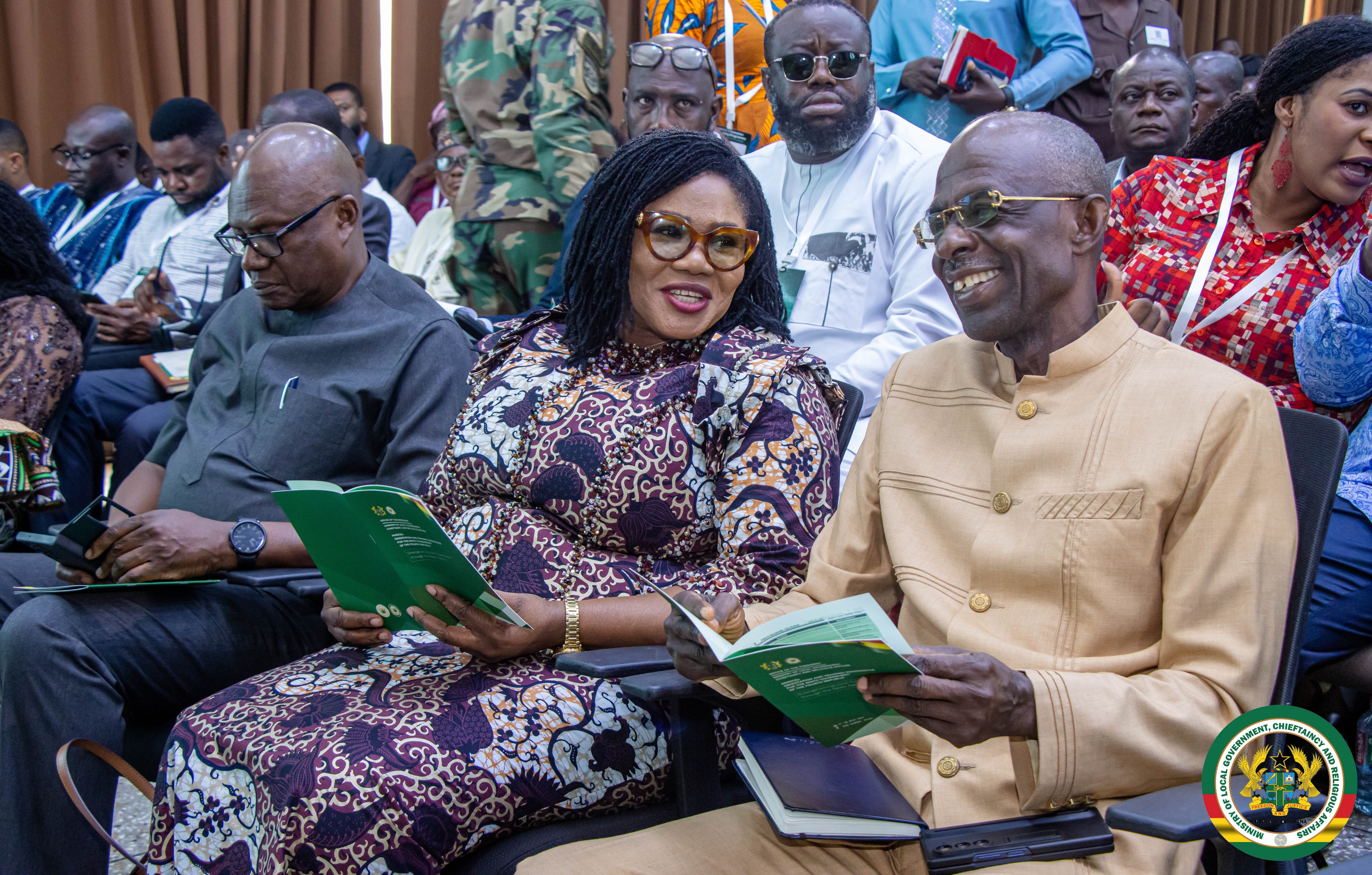The Minister for Local Government, Chieftaincy and Religious Affairs, Hon. Ahmed Ibrahim (MP), has called on newly appointed Metropolitan, Municipal and District Chief Executives (MMDCEs) to embrace their roles with purpose, discipline, and a performance-driven mindset, as Ghana embarks on a bold new phase of local governance under the Reset Agenda of the ninth government of the Fourth Republic.
Delivering his welcome address at the official opening of the two-day Orientation and Training Programme at the Institute of Local Government Studies in Accra, the Minister expressed deep appreciation to His Excellency the President, John Dramani Mahama, for his unwavering commitment to decentralisation and for personally gracing the ceremony despite his demanding schedule.
He further extended profound gratitude to the Vice President, Her Excellency Professor Naana Jane Opoku-Agyemang, and other distinguished dignitaries including the Rt. Hon. Speaker of Parliament, the Chairman of the Council of State, senior party leadership, and technical experts, for their collective presence, which, he said, speaks volumes of the national importance attached to local leadership.
In acknowledging the processes leading to the confirmation of the new MMDCEs, the Minister noted that approximately 99% of nominees have been duly confirmed, many with overwhelming one-touch endorsements by their assemblies, a clear vote of confidence in their competence and potential. He credited this success to the diligent work of the Vetting Committee, chaired by Hon. Johnson Asiedu Nketia, which ensured the nomination of suitable leaders for local government.
Describing the occasion as historic, Hon. Ahmed Ibrahim noted that this is the earliest MMDCE orientation to be organised since the inception of the 1992 Constitution, and that it signifies a deep urgency to hit the ground running. He reminded MMDCEs that the expectations of Ghanaians are exceedingly high following the endorsement of the Reset Agenda in the 2024 elections, and therefore, business-as-usual attitudes must give way to action-oriented leadership.
“Do not be carried away by the titles and perks of the job,” the Minister advised. “Let the celebrations end, and let your real work begin with humility, collaboration, and a deep resolve to serve, not to be served.”
He urged the MMDCEs to become the chief implementers of the President’s vision across all 261 districts of Ghana, translating policy into action, and driving visible, people-centred development in every community. He reminded them that their human relations and capacity to engage meaningfully with citizens will be crucial to their success.
The Minister also elaborated on the theme of the orientation: “Strengthening Local Governance through the Reset Agenda.” He said the theme reflects a strategic commitment to reorient public service delivery, deepen decentralisation, and reassert the values of good governance, responsiveness, and innovation. He encouraged the MMDCEs to avoid becoming “armchair administrators” and instead emulate the President’s example by staying connected with the grassroots.
A key portion of the Minister’s remarks highlighted the unique structure of the Ministry itself, which now brings together Local Government, Chieftaincy and Religious Affairs, three pillars that have long operated independently but are now harmonised to unlock synergy in local governance. He urged the MMDCEs to leverage this ‘tripod’ structure to strengthen accountability, coordination, and inclusive development within their districts.
Touching on the content of the training programme, Hon. Ahmed Ibrahim explained that the two-day orientation is not a mere ceremonial formality, but rather a foundational exercise that will equip the MMDCEs with the philosophies, tools, and leadership values required for effective performance. He listed core areas to be covered, including: the development blueprint of the ninth government; the Local Governance Act (Act 936); the 24-Hour Economy and flagship programmes; local security and public accountability; youth empowerment; revenue mobilisation and prudent financial management; and partnerships with traditional, religious and civil society actors.
While acknowledging existing challenges such as weak supervision, staff discipline, and low internally generated funds (IGF) across many MMDAs, the Minister expressed confidence that these can be overcome through renewed energy, innovation, and hands-on leadership. He called for strengthened monitoring and effective performance oversight as tools to drive district transformation.
He ended by charging the MMDCEs to take ownership of flagship programmes such as the 24-Hour Economy Markets, the Clean-Up Ghana Initiative, Blue Water Guards, Adwumawura Programme, and the National Poultry Development Programme. He pledged the continued support of the Ministry, the Office of the Head of Local Government Service (OHLGS), the Institute of Local Government Studies (ILGS), and Regional Coordinating Councils in providing technical guidance, capacity development, and performance support.
“Together, let us build stronger communities and a better Ghana for all,” the Minister declared, warmly welcoming the MMDCEs into their new leadership journey.
Source: Darling Maame Efua Cann
(Public Relations Unit MLGCRA)



